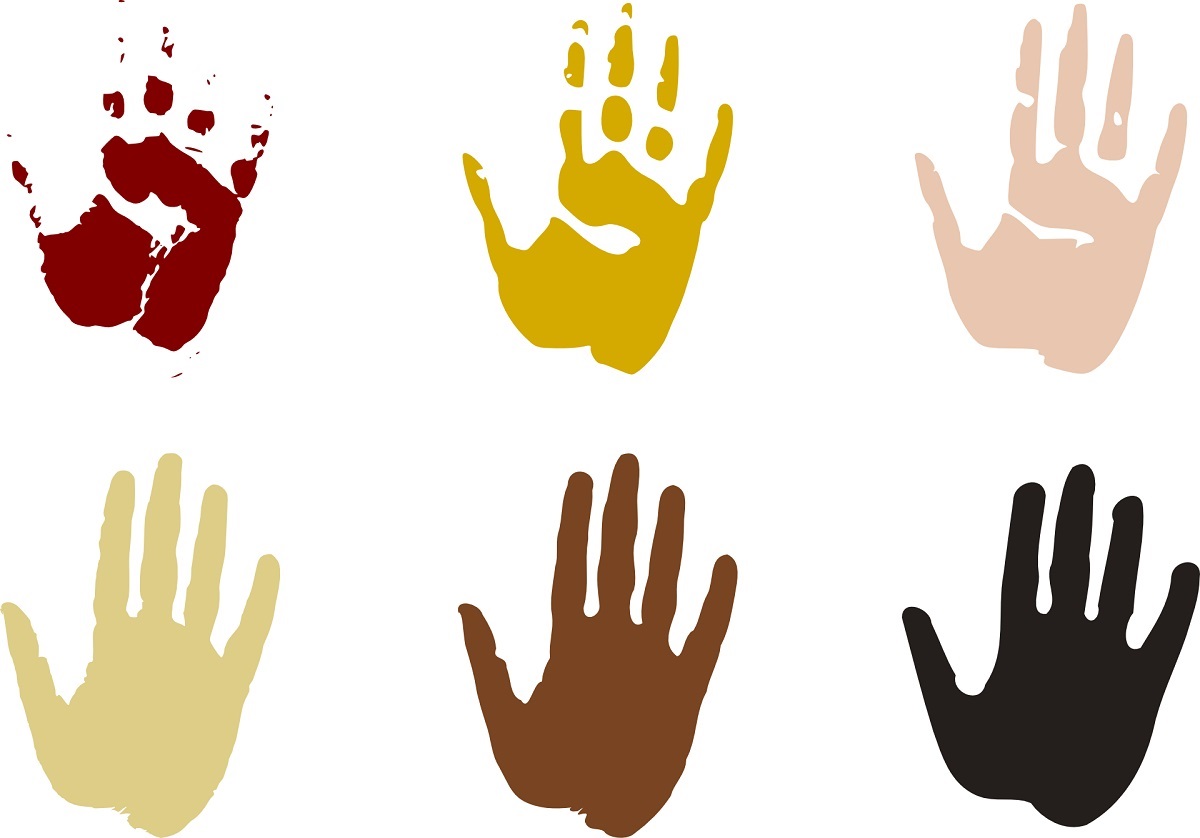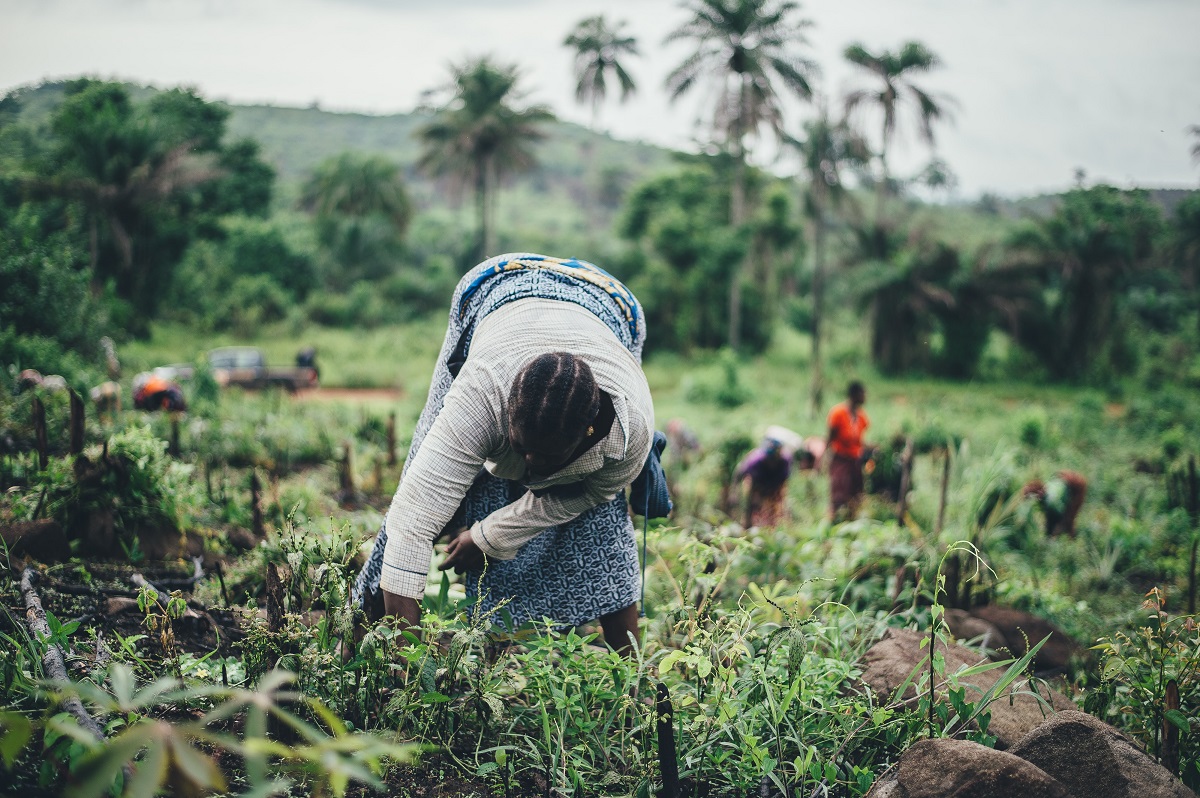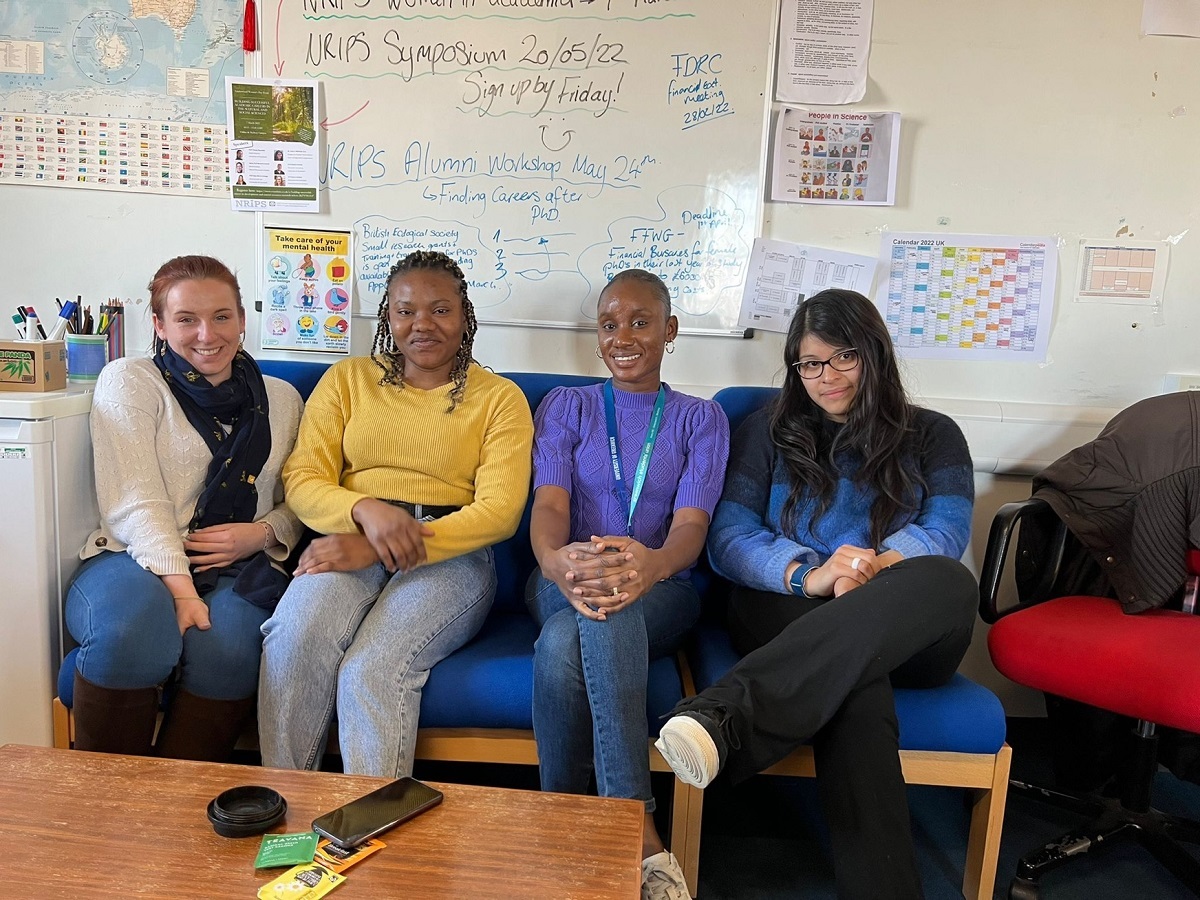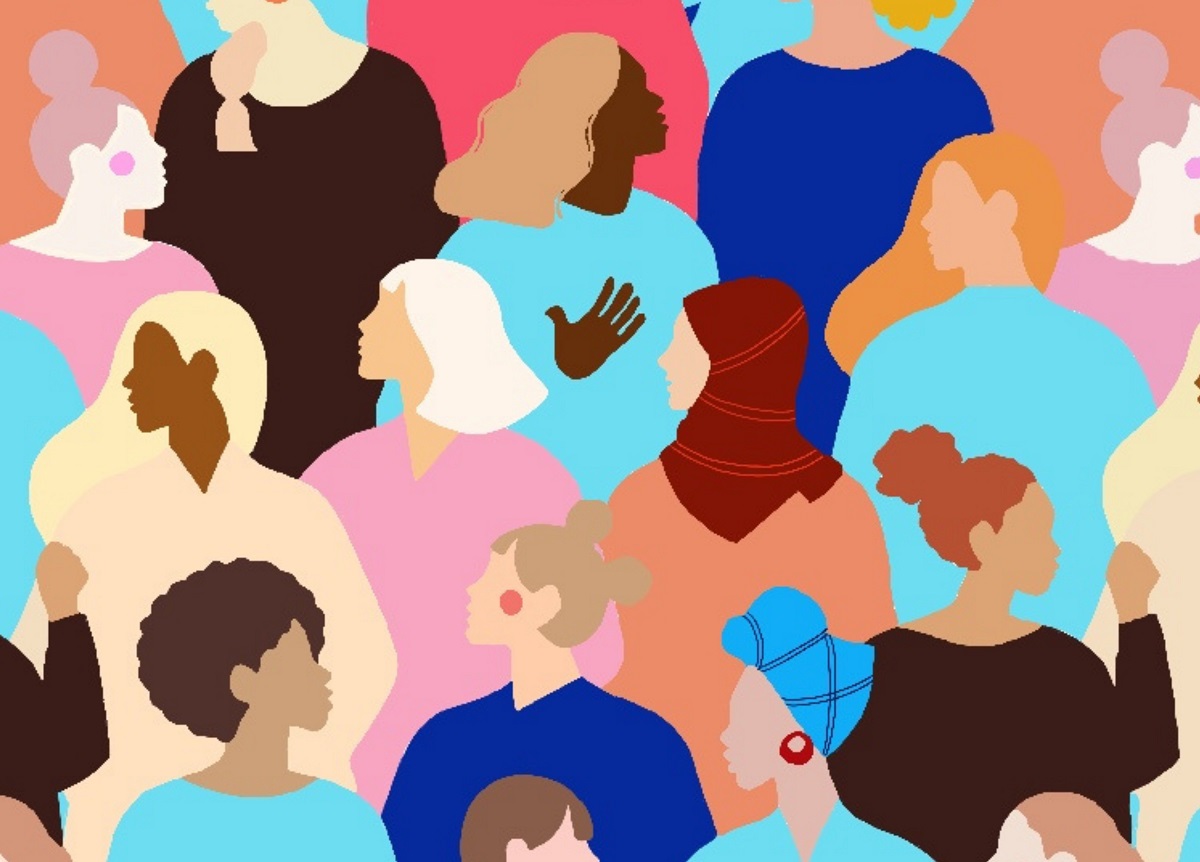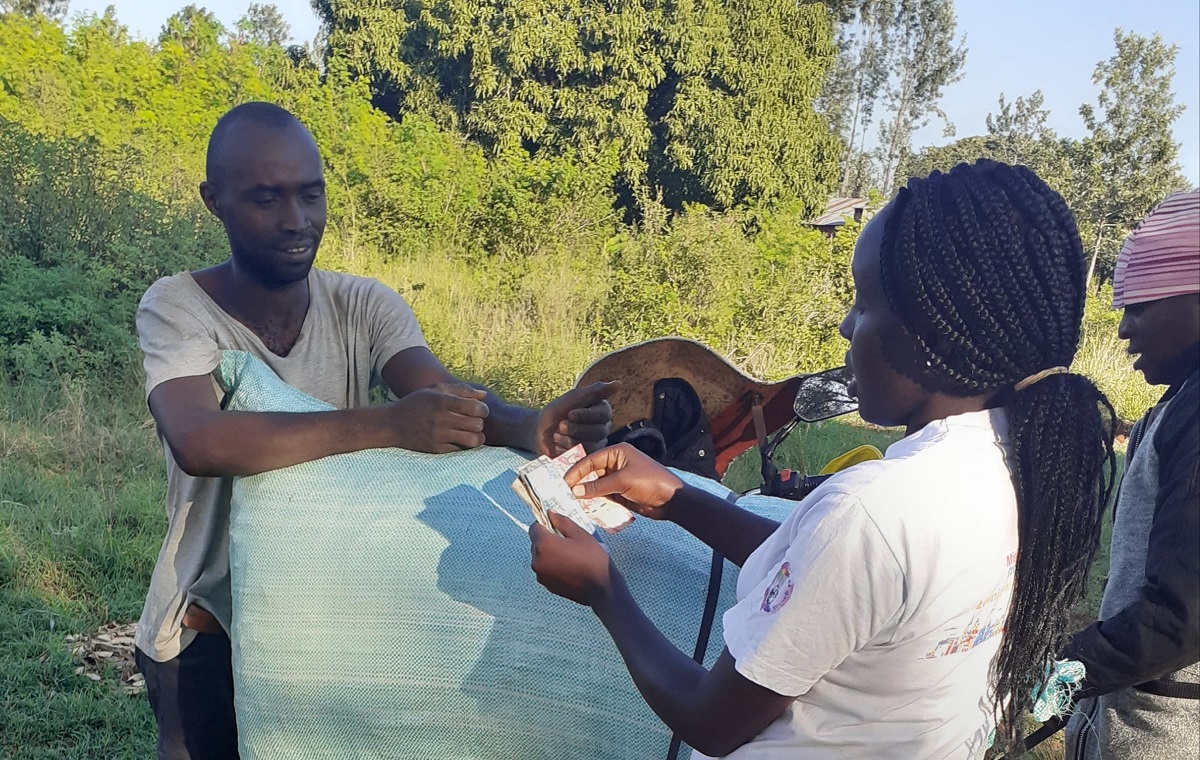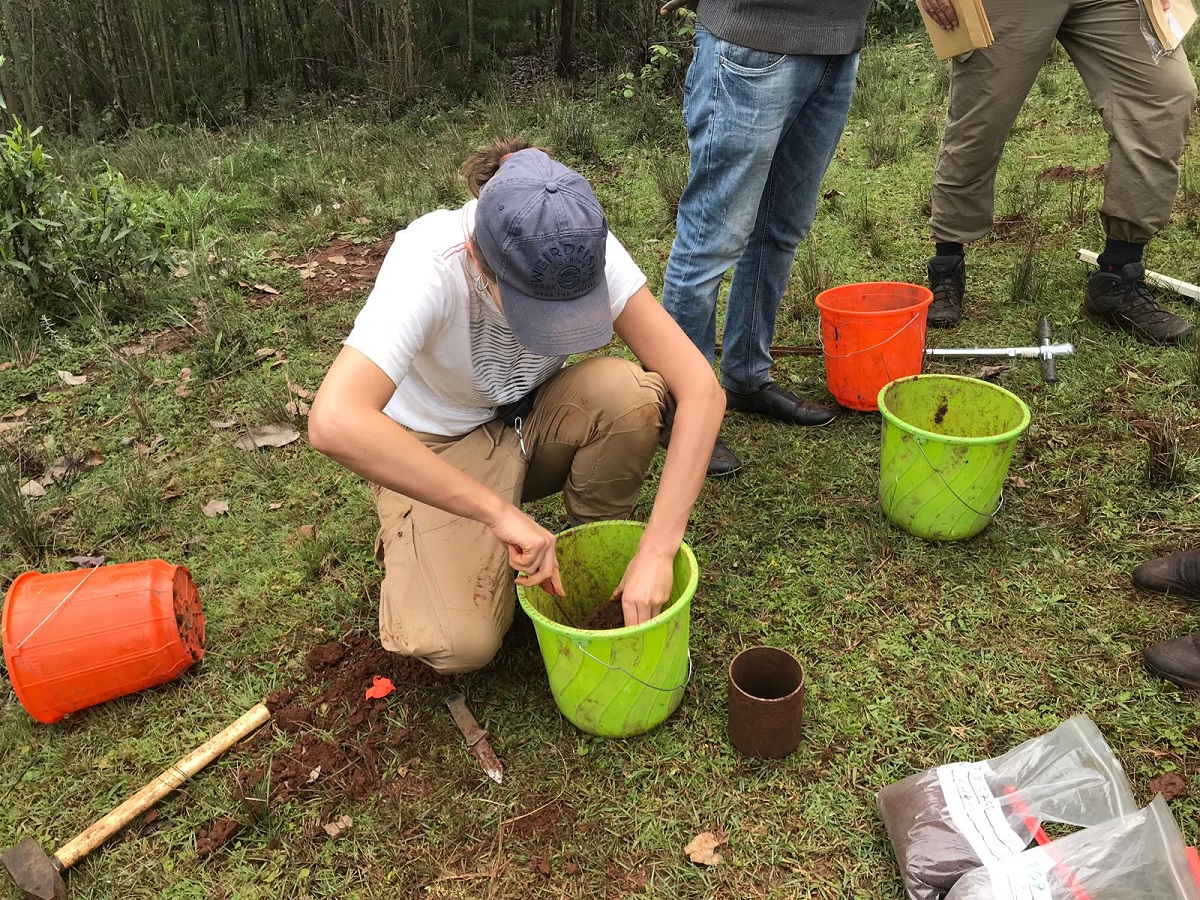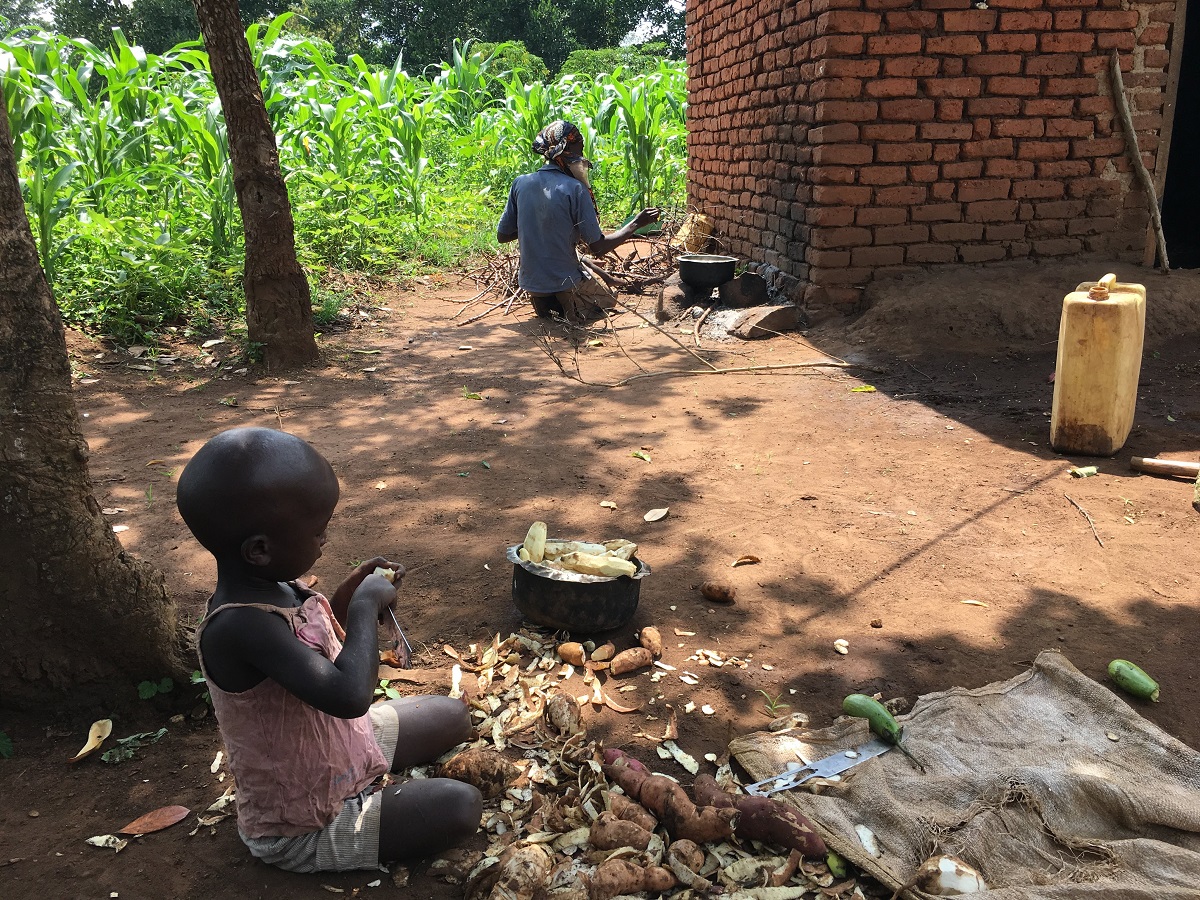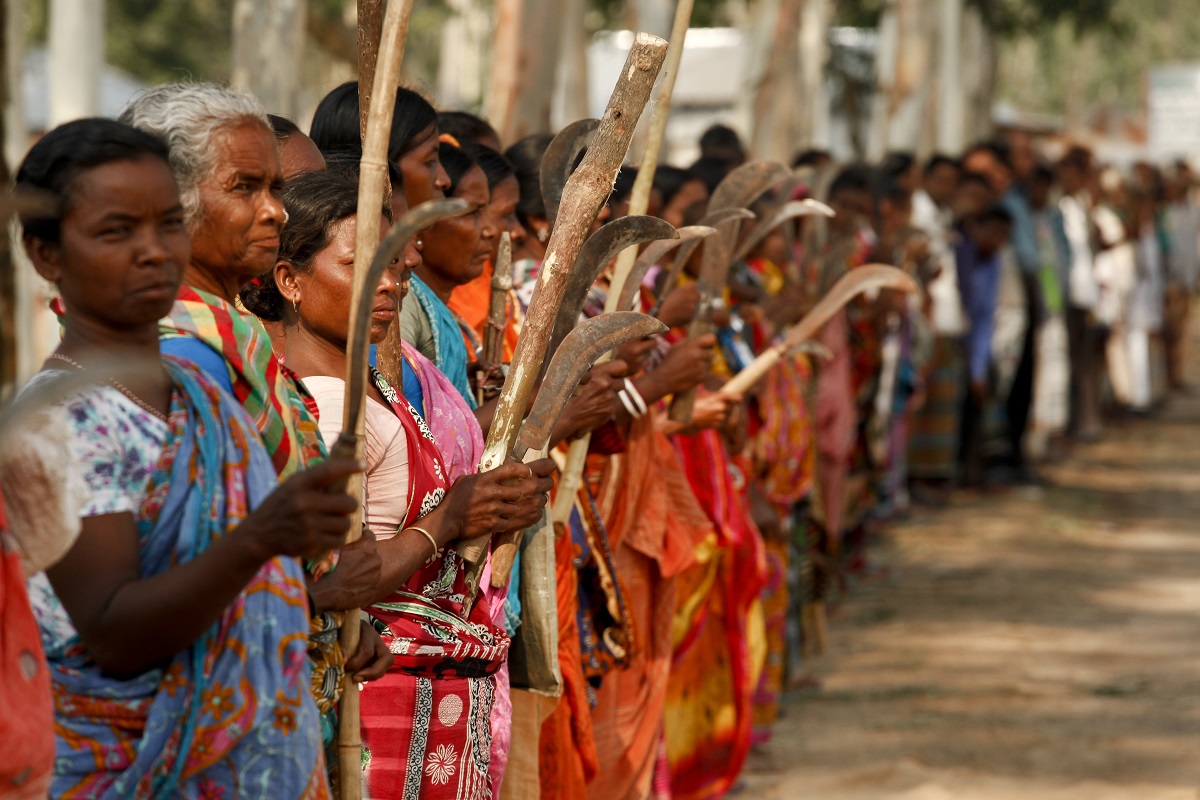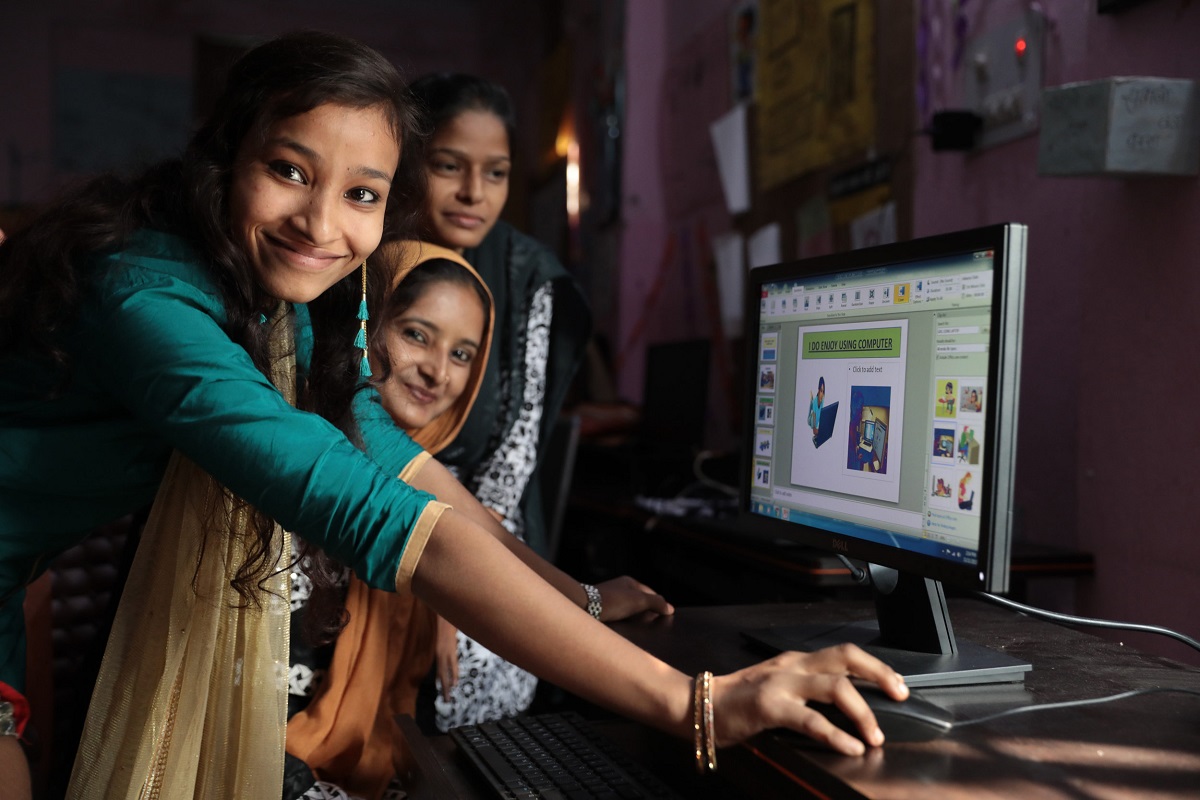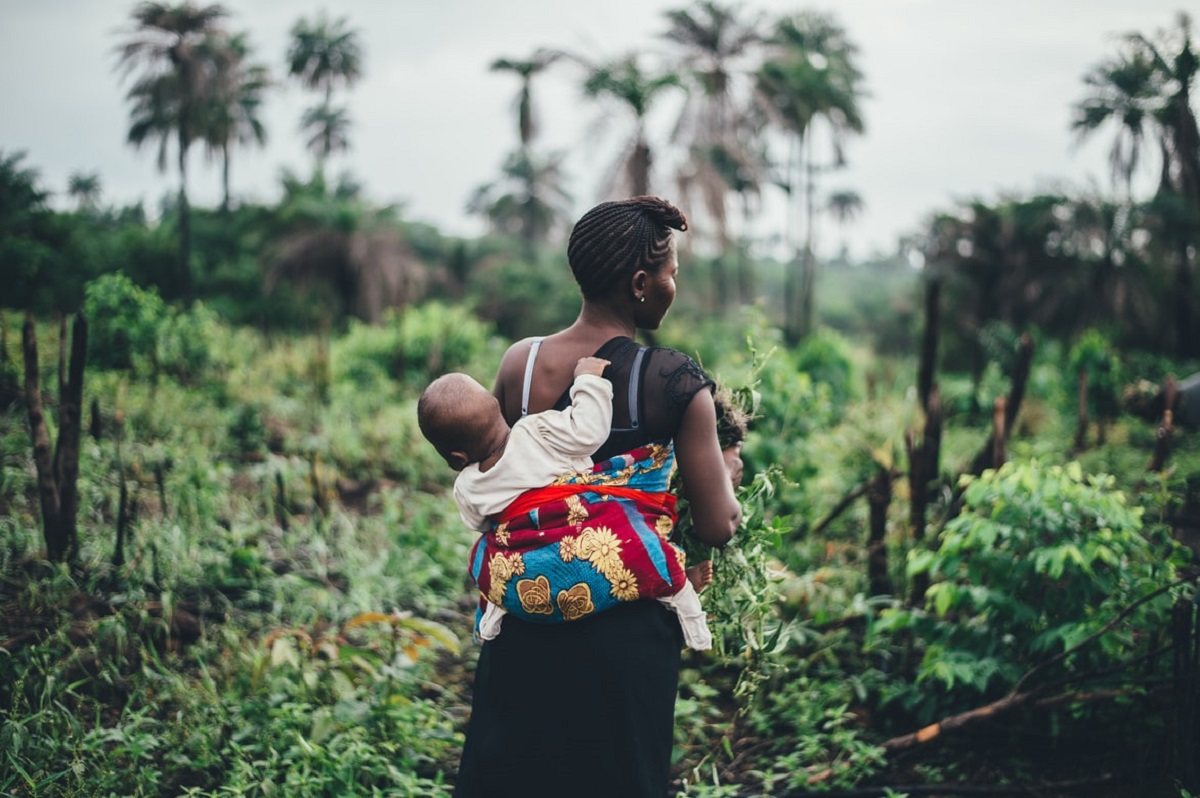Lora Forsythe, Kaysara Khatun and Uche Okpara |
Gender-based violence (GBV) is experienced by one in three women worldwide [1]. This significant global health and human rights issue has been exacerbated by the COVID-19 pandemic, as a result of measures such as lockdowns and disruptions to vital support services [2, 3]. UN Women defines GBV as harmful acts directed at an individual or a group of individuals based on their gender, and its roots are based in systemic gender inequality, the abuse of power and harmful social norms [4]. The term emphasises the multiple forms of violence that can be experienced by adults and children based on gender.
Lora Forsythe, June Po, Valerie Nelson, Fiorella Picchioni, Gwen Varley* |
‘How can we make food systems research and action more feminist, critical and transformative?’ This was the central question at a panel session convened by staff from NRI’s Gender and Social Difference Programme at the ‘Cultivating Equality’ International Conference in October 2021, organised by the CGIAR GENDER Platform and Wageningen University & Research. The conference focussed on research that helps to understand and advance positive synergies among sustainable and resilient agriculture and food systems, and equality in societies globally.
Katie James, Lydia O’Meara, Rania Hassan |
The obstacles facing women in academia exist at multiple stages in their career. Despite the fact that over half of all PhDs have been awarded to women in recent years, the percentage of permanent female academic staff is between 20–30% in the EU and US, and women are currently underrepresented as first authors in high-impact journals [1]. Women in the UK occupy only 17.5% of senior academic positions [2]; of this, only 2% are women of colour [3].
“Achieve gender equality and empower all women and girls” – this is Sustainable Development Goal #5, one of the 17 global goals adopted in 2015 by the United Nations. My colleagues at NRI, our partners, students, and collaborators will be familiar with this goal. While some have spent their careers researching this area, many others will have incorporated a ‘gender element’ or used a ‘gender lens’ in their research projects.
Women’s responsibilities in agricultural production in low-income rural communities are increasing, along with high rates of male migration to urban areas. Yet with recent shifts in data collection tools, women have been sidelined in the provision of agricultural information and statistics, and as a consequence, have not been able to influence or easily access appropriate agricultural services.
Guadalupe Roberti* with Lucie Büchi and Lora Forsythe |
Soil is the foundation of life on Earth. For agriculture, food systems and natural resources, soil provides a range of essential ecosystem services, and its quality or ‘health’ is central to sustainable agriculture and food production.
Gwen Varley* and Winifred Candiru* |
Motherhood can come with tremendous pressures: many women struggle with balancing care work with other work obligations, mental health challenges, physical complications of childbirth, fatigue, and a slew of gendered norms and expectations. These pressures are all the more intensified for women living in extreme poverty and facing worries about whether they can provide their children a steady, nutritious diet of diverse, nourishing foods, or, in many cases, whether they can provide them a meal at all.
International Women’s Day (IWD) grew out of the labour movement in the 1900s to become a major annual event. Remembering the significant labour struggles that shaped the event, this piece marks IWD 2022 by reflecting on the current conditions of women’s labour in the capitalist food system. Integrating questions on nutrition with contemporary labour struggles, this piece presents a feminist political economy of food approach, which enables us to see how these two issues are inextricably linked.
As suggested in a new publication on social mobility in developing countries, women have often been overlooked. The open access and freely available edited volume, ‘Social Mobility in Developing Countries: Concepts, Methods and Determinants’, provides explanations for and begins to address this shortfall.
Lora Forsythe, Fiorella Picchioni, Gillian Summers |
International Women’s Day (IWD) is an important day to highlight the achievements of women in agriculture, food and natural resources, which are often made invisible. The day is also an opportunity for NRI’s Gender and Social Difference (GSD) Development Programme to critically reflect on the past year and its future direction. This will enable us to identify ways our research can address important gaps in knowledge related to gender equality and transformative change.


